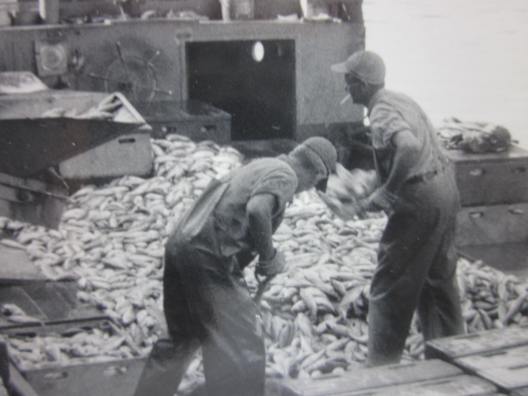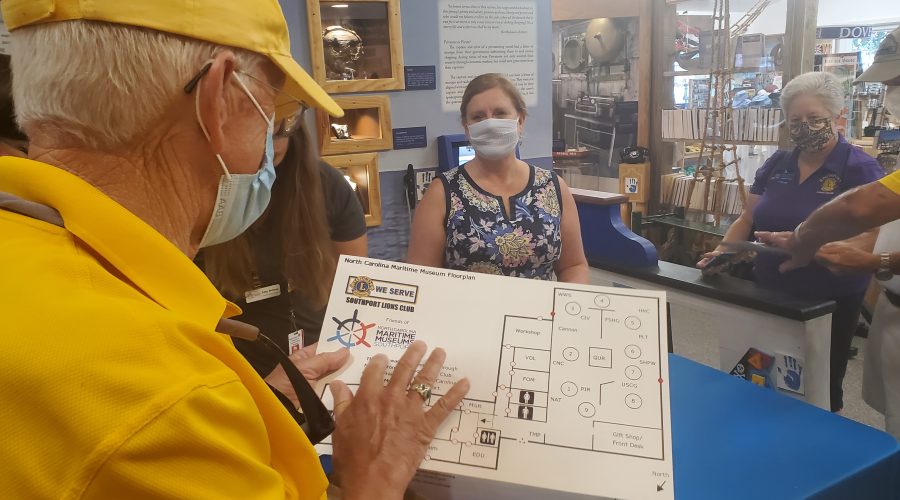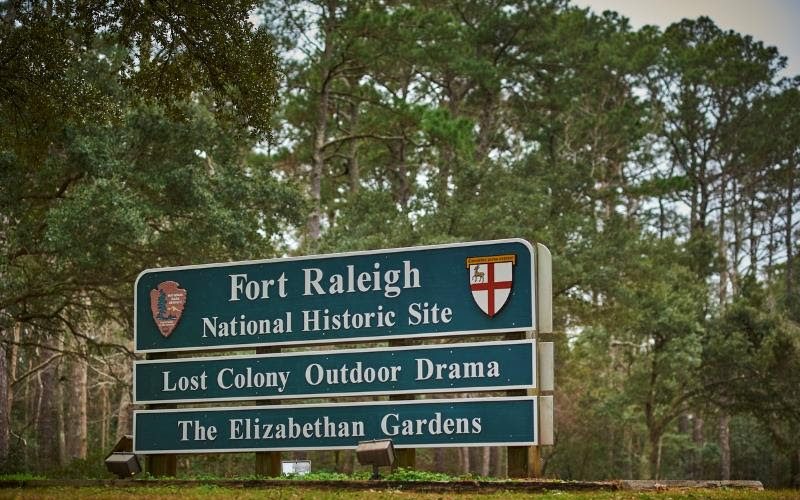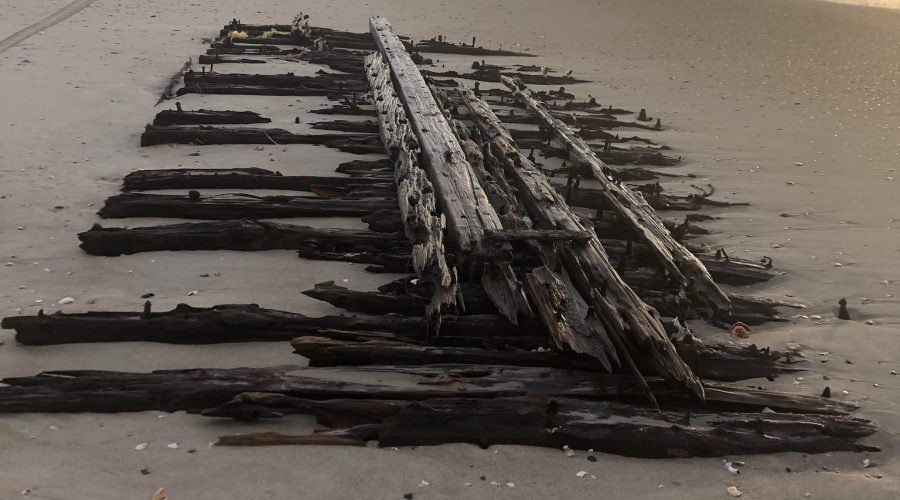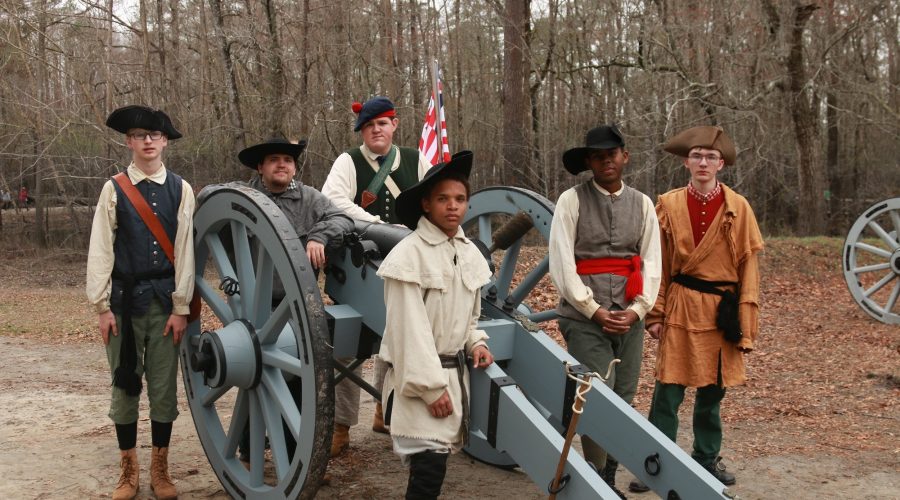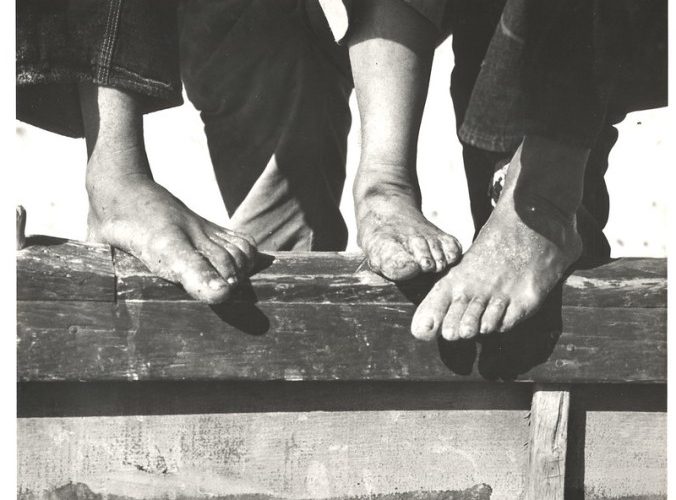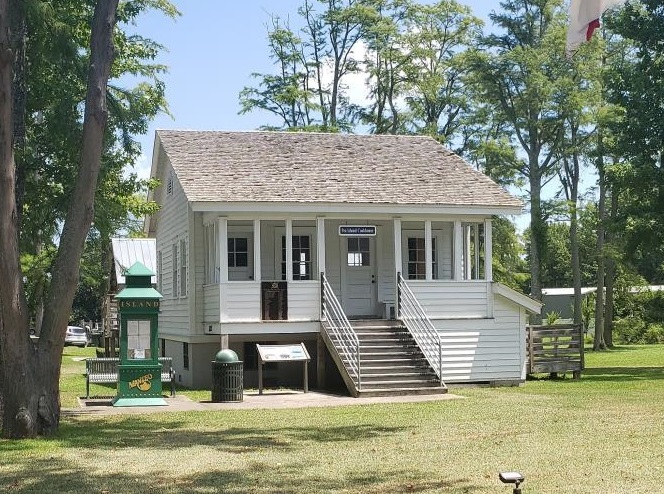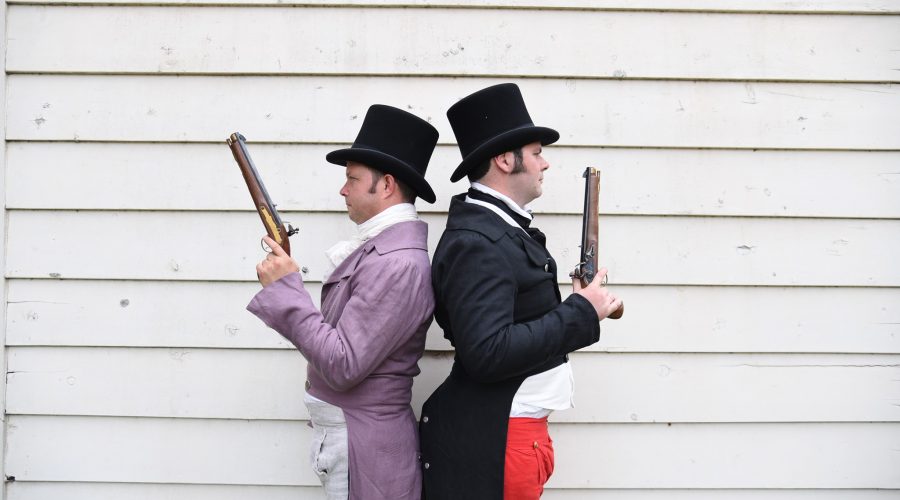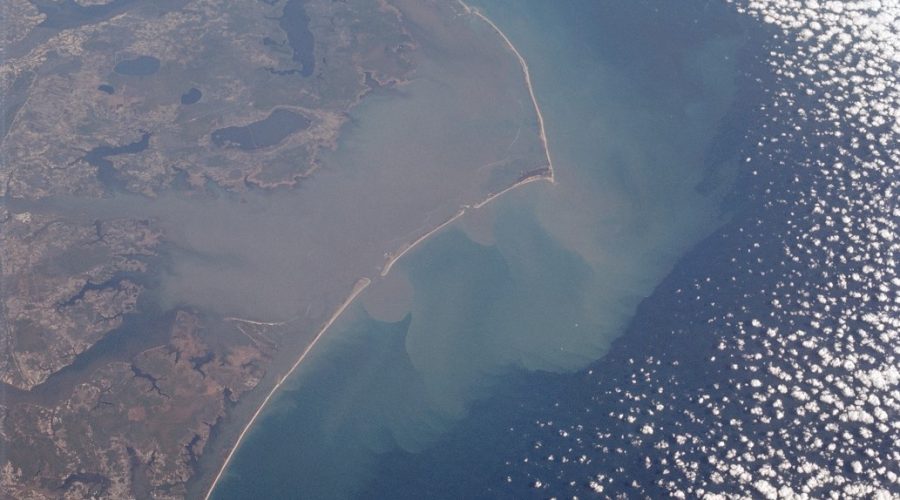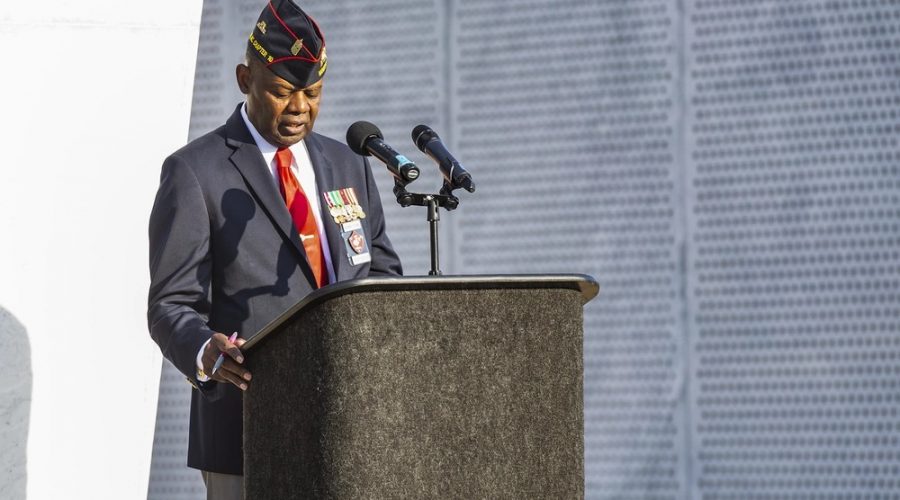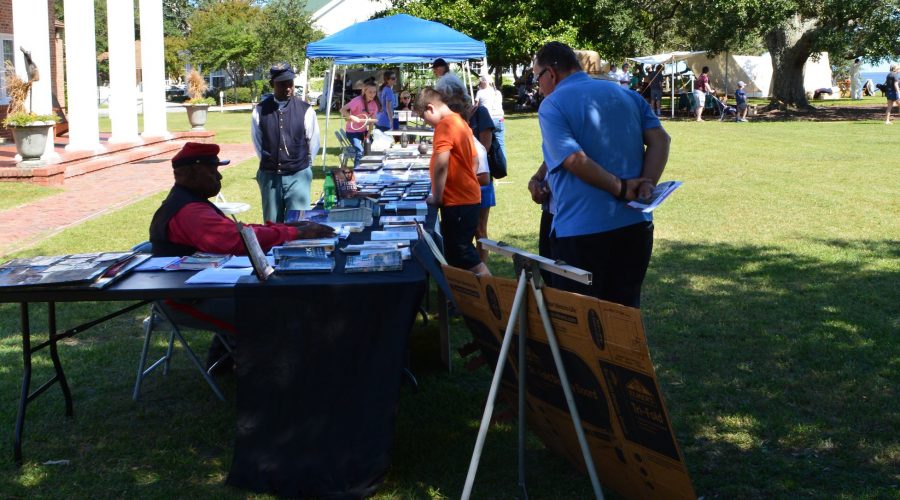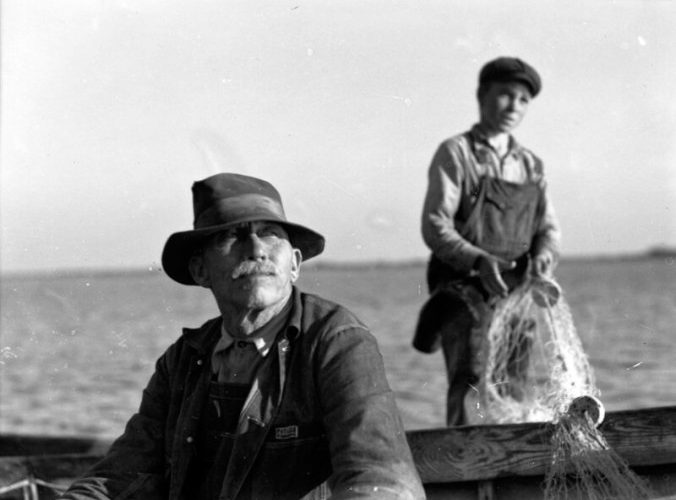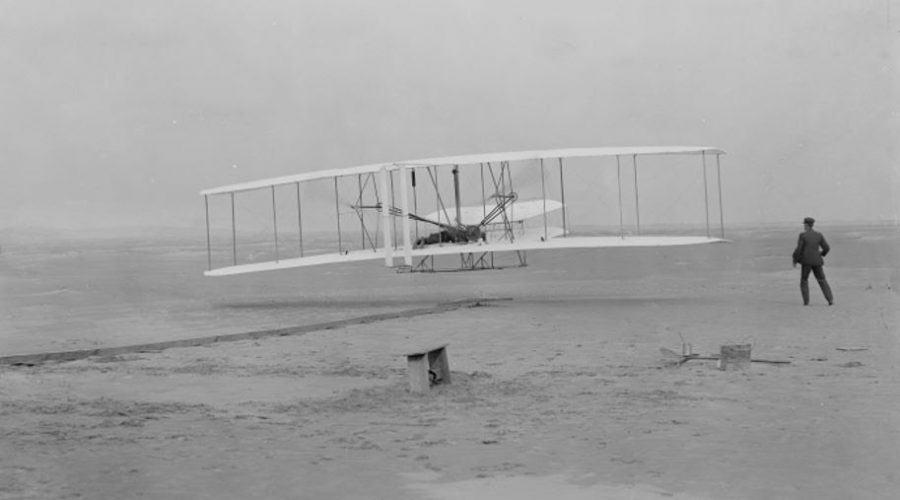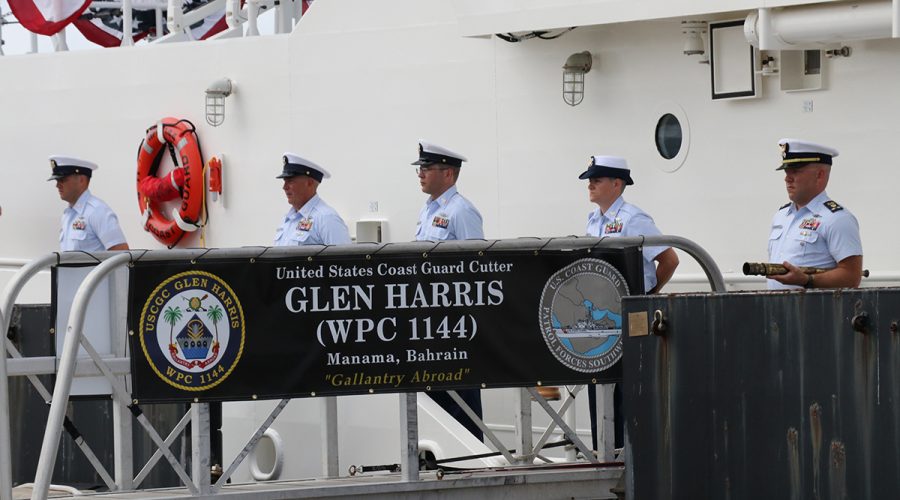Historian David Cecelski illustrates with photos and family lore the story of fishers from Down East Carteret County who found their way to Lake Erie more than a century ago.
culture and history
Southport Maritime Museum debuts tactile maps
The North Carolina Maritime Museum at Southport has begun offering tactile maps of the facility to allow visitors with low-vision or who have blindness to access the site independently.
Public invited to watch dig at Fort Raleigh Historic Site
Archaeologists will look at new locations at Fort Raleigh National Historic Site Sept. 15-24, an effort to find Sir Walter Raleigh’s “Lost Colony.”
1913 storm thrashed ships, and a rescue led to accusations
The fourth Atlantic hurricane of the season this month 108 years ago resulted in a handful of ships lost or aground along the Outer Banks, including one daring rescue that led to allegations of piracy.
Moores Creek Battlefield to host Patriot’s Day Sept. 11
Moores Creek National Battlefield will take visitors to the 18th century 10 a.m. to 3 p.m. Saturday, Sept. 11, during Patriot’s Day living history event.
Gardeners to lead talk on heritage plants at Tryon Palace
Tryon Palace and the Craven County Agricultural Center are hosting Sept. 18 a talk on heritage plants of eastern North Carolina and giving a sneak peek of next month’s fall plant sale.
Our Coast’s History: Varnamtown’s Fishermen 1938
Photographer Charles Farrell captured how mullet fishermen in the fall of 1938 “made do,” as historian David Cecelski explains, on Bald Head Island during the Great Depression.
Manteo museum a snapshot of Pea Island Station History
The tiny Pea Island Cookhouse Museum in Manteo tells the bigger picture of the Pea Island Life-Saving Station, manned by an all-Black crew from the 1880s to 1940s.
Tryon Palace to reenact the 1802 Stanly-Spaight duel
Tryon Palace will reenact the Stanly-Spaight duel, two political rivals, at 4 p.m. Sept. 4 on the front lawn of the New Bern Academy.
Geographer explains origins of Outer Banks place names
Roger Payne recently published his second reference guide to the names of places along North Carolina’s Outer Banks.
Montford Point Marine Day to honor African Americans
The 12th annual Montford Point Marine Day Ceremony is set for Friday in Lejeune Memorial Gardens at the Montford Point Marines Memorial in Jacksonville.
Southport Maritime Museum to host Living History Weekend
The N.C. Maritime Museum at Southport will host a Living History Weekend Sept. 18-19 on the museum grounds that will focus on World War I and the U.S. Life-Saving Service.
Our Coast’s History: Remembering 1930s Sneads Ferry
Through Charles Farrell’s photographs of Sneads Ferry in the 1930s, historian David Cecelski learned the stories and people of the Onslow County fishing village.
Gullah Geechee Commission to host NC-focused meeting
The Gullah Geechee Cultural Heritage Corridor Commission will hold Aug. 28 its North Carolina-focused public meeting.
Aviation, history buffs to celebrate Orville Wright’s birthday
In honor of National Aviation Day, Aug. 19, the public can purchase rides on one of the famous “Warbirds,” or World War II aircraft, the Avenger “Doris Mae.”
Coast Guard commissions cutter named for NC native
A recently commissioned Coast Guard cutter bears the name of an enlisted Coastguardsman from Carteret County, who received the Silver Star for his heroism during World War II.

